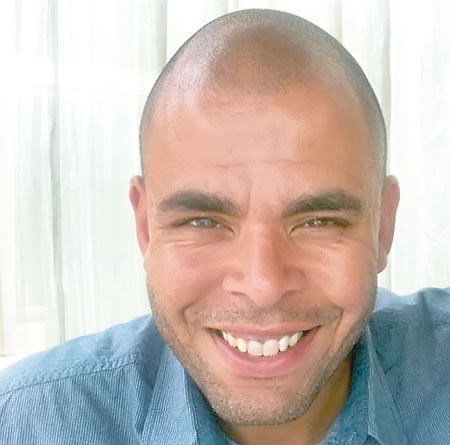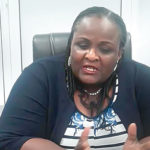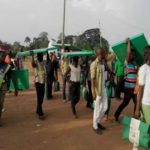Debtwire Central & Eastern Europe, Middle East and Africa (CEEMEA) recently launched its latest Africa Project Finance Trend update. In the report, the company listed key transactions in Nigeria that reached financial close in 2018 and opportunities expected in Africa this year. Do you have one on one discussion with the officials of some of these companies that are into the deals, or do you glean your information from annual reports or newspaper reports?
The way we work is normally to reach out to people who are involved in the deal directly and I have to crosscheck the information by at least two people. I also go through some macro-economic data which can be found in their reports or comments from professionals in the industry. So in this case, we refer to some partners, refer to some financial advisers, some specific market. I always link it to the original report and interpret.
In your own assessment which of the African countries has more chances/prospects of attracting investors if you must rank them?
I will say Nigeria due to its conducive environment. Nigeria has natural resources like oil and gas, minerals and the government is trying its best to diversify the economy, such that a lot of infrastructure projects are coming online. We also look at Mozambique. It’s a matter of survival for their national oil company even for their government budget that the Area 1 LNG Project being arranged by SocieteGenerale succeeds. This is the biggest project finance debt ever raised on the continent amounting to 14.5 billion dollars and a Final Investment Decision is expected by June 2019. It is critical and you can see that lots of things are moving very fast.
You mentioned Nigeria’s conducive business environment. Is there no concern about the hostilities in Nigeria?
The main fear an investor could have is a sudden review of some licenses which have been given last year or two years ago if there is a new administration. This is because if your license is under scrutiny, investors may defer their capital expenditure programme, or cancel it completely. Basically, the project will be put on hold for a little while. That’s the only concern I think investors could have. When I talked to some financial advisers and bankers, they would prefer the incumbent president to be reelected as it would bring continuity. Another source also told me that for him, the fear of disruption in the capital market is unproven and it is a time to take advantage from irrational investors’ fear to consolidate a position.
This person does he know the market well?
Yes. He’s a director of Debt Capital Market for one of the biggest banks in Lagos.
That means that this trend of portfolio investments being higher than foreign direct investments always will continue?
Yes. There’s something I highlighted in the report. You have now lots of initiatives and brainstorming coming from DFIs. They are trying out new approaches; trying to promote the local currency debt instead of raising hard currency debt for projects for which revenues derive from local currency. They try to circumvent the mismatch between debt and revenues currency that penalise infrastructure projects. For instance, you have a company called GuarantCo, part of the PIDG group (Private Investment Development Group), which provides unconditional and irrevocable guarantees in local currency in favour of banks or bonds’ investors in order to mobilise local currency debt towards key developmental infrastructure projects.
This has enabled local pension funds to plug into long term financing of infrastructure projects, things that they would not normally do. This approach has also vitalised local capital markets as it attaches a strong credit mitigant instrument on a local currency bond issuance. In Nigeria for instance, InfraCredit, GuarantCo, Nideia Sovereign Investment Authority (NSIA), Africa Finance Corporation (AFC) and KfW vehicle, is providing guarantees in Naira to banks and bonds investors for infrastructure projects. It has successfully supported the corporate bond issuance in December 2017 for the power company, Viathan Group, issued a N10 billion corporate bond on the back of InfraCredit guarantee. This is the first corporate infrastructure bonds issued in the Nigerian debt capital markets with a tenor of 10 years and pension funds represented a large portion of bond subscribers.
Another interesting part of the report is the Nigerian-Morocco pipeline. I want to know whether you have any idea of the initiator of this project? Nigeria, Morocco or a private company?
Both governments, via Nigerian National Petroleum Corporation (NNPC) and Office National des Hydrocarbures et des Mines (ONHYM). I think are driving it and I read in the news that the project is moving forward and gaining some traction in the market though it seems as a long shot. NNPC and the ONHYM, awarded the Front End Engineering contract to Penspen for the construction of a 5,700 km gas pipeline between Nigeria and Morocco across several other west African countries. Total cost is estimated at US$20 billion.
What are some of the projects in Nigeria listed in your report?
We have listed three major transactions in Nigeria that we would expect to progress this year. NNPC advised by FBN Quest is to arrange US$2 billion of debt to finance the rehabilitation of three refineries located in Warri, Kaduna and Port Harcourt.
Nigeria LNG has mandated Sumitomo Mitsui Banking Corporation (SMBC) and Guarantee Trust Bank (GTB) to arrange a US$2 billion of debt to finance the construction of an additional LNG train to increase NLNG production to 30 metric tonnes per year as reported.
Also, one of the highest profile indigenous oil companies, Forte Oil, is looking to divest up to 75 per cent to its downstream business with Vitol, Mercuria and Eterna among the potential acquirers.
On the infrastructure side, NNPC is also involved in a number of key transactions. It is building a 614km pipeline linking the towns of Ajaokuta, Kaduna and Kano in Nigeria. Total project cost is estimated to be in the range of US$2.8 billion split in three phases, for which different contractors will be awarded the construction contract. Contractors will include indigenous companies, such as Oando, alongside Chinese companies.
Another identified project is that of the Ministry of Transportation of Nigeria (MToN). It is seeking investors to finance and develop a 1,400km coastal railway stretching from Lagos to Calabar for a total cost of approximately US$11 billion.
MToN will also attempt to progress on the Lagos-Kano railway project which has an estimated cost of US$6.7 billion. GTB is advising MToN. The construction was awarded to China Civil Engineering Construction Corporation.
Another major logistic project includes the financing and the development by the Federal Government of Nigeria of a US$2 billion deep sea port in Akwa Ibom State.
What is your view on the Inter-African Trade?
The idea is good indeed, so far I see pipelines of infrastructure projects attached to this vision of inter-African trade, with programs of roads, railways, dry ports linking countries major cities.
However, before planning intercontinental trade, African governments should first focus on developing local manufacturing capacity. Otherwise African countries will have nothing to sell to each other except edible goods, which do not bring much value except food security. I see refineries projects blooming for export (e.g. Dangote refinery) and that are a first step in that direction. However, there is still big question mark regarding manufactured goods in general produced on the continent.
Today, African countries import the vast majority of manufactured goods. If governments keep failing to support local industrialisation, Inter African trade will only relate to transporting edible soft commodities from an African country to another and linking import ports to landlocked countries.
This would not support the much needed urgent economic and socio development of the region. On the contrary, it would keep stimulating and supporting alien economies that is, European, Asian and American export activities. Africa is the biggest untapped market and it is time indeed that Africans benefit from both side of the selling/buying chain.






